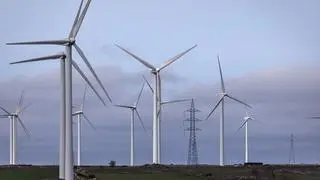Though it did not bag a licence to set up a bank, L&T Finance Holdings remains steadfast in its vision of becoming a comprehensive player in the Indian financial services space.
Speaking to Business Line on a host of issues, including the company’s businesses and the ongoing elections, N Sivaraman, President and Wholetime Director, L&T Finance Holdings, said it is just a matter of time before local investors also see merit in the Indian markets just like their foreign counterparts.
Sivaraman observed that it will take another two-three quarters for the economy to revive. Excerpts:
Given that the RBI has given bank licences to only two entities, what is the road ahead for your company, which was also an aspirant for a bank licence?
L&T Finance has a robust business model around multiple platforms — wholesale, retail and investment management. Each of these businesses has shown decent growth and strong financial performance.
We have built a strong leadership team in all areas to achieve our vision of being a comprehensive financial services player and creating sustainable value for our stakeholders. We pursued the banking licence to achieve our vision of becoming a comprehensive player in an accelerated manner, this remains unchanged and we will explore alternative ways of achieving our vision.
How is your business faring and what are the areas you are focussing on?
We saw stress in the construction equipment (CE) and commercial vehicle (CV) segments about two years back. In both areas we saw 20-30 per cent de-growth in business in the last two years.
One of the things that we have done over the last two years is to re-group our business between the retail and the wholesale platforms. We got the organisation arranged in such a way that the resources could move from one segment to another. Consequently, our portfolio around the business to customer (B2C) segmentsuch as housing, two-wheelers, cars, tractors and microfinance has really done well.
In the retail segment, margins have been inching up by 15-20 basis points every quarter for over the past year or so.
What challenges are you facing?
The areas of challenges have been origination of new loans and lack of good quality loans. To some extent, we have substituted that with lending to high quality corporates and by doing some big-ticket lending.
The existing CV and CE portfolios are under stress. The delinquencies are manageable, they are not large.
We have done a good amount of foreclosures too, taken the loss and sold the assets. We have become more cautious. For instance, we do not lend to thermal power projects unless there is a strong fuel supply linkage available. We are instead focusing on financing renewable energy resources such as solar energy.
Despite the overall slowdown, your rural products portfolio has really done well. Why?
Basically our rural product portfolio comprises small CVs and tractors, which are used in rural areas. They have done well. Our growth in these segments has been 40-45 per cent.
The Minimum Support Price that the Government offers and good monsoon so far have ensured that people in villages are able to pay back their loans.
Which segments of your business are likely to do well?
It is difficult to predict at this point. The elections mean that no important decisions will be taken. The Cabinet Committee on Investment has approved some of the projects that were stuck. For that to really trickle down to the ground level, it will take a quarter or two.
I think the new Government will settle down by September. Then when it takes decisions, things will move in another quarter or two. More or less, the current financial year is likely to be muted.
We can expect overall growth of 15-20 per cent. We have got the IDF (infrastructure debt fund) licence.
The first of the few projects is just about to happen and we can now look to finance operational projects, which we believe will be a substitute for lack of new projects.
Are loan decisions being put off pending the outcome of elections?
Where is the quality? How many corporates are free of stress on their balance sheets? Unless economic or construction activity picks up, there is no way the CE and CV portfolios are going to come out of stress.
Take a CV operator, for instance. On the one hand, the cost of operations has gone up, on the other, because of lack of business, they are not getting remunerative price. Personal living expenses have also gone up by 40-50 per cent in the last four-five years. So, he has been hit in every which way.
Correction
N Sivaraman's designation was incorrectly given as CFO. He is President & Wholetime Director of L&T Finance Holdings. The error is regretted.







Comments
Comments have to be in English, and in full sentences. They cannot be abusive or personal. Please abide by our community guidelines for posting your comments.
We have migrated to a new commenting platform. If you are already a registered user of TheHindu Businessline and logged in, you may continue to engage with our articles. If you do not have an account please register and login to post comments. Users can access their older comments by logging into their accounts on Vuukle.